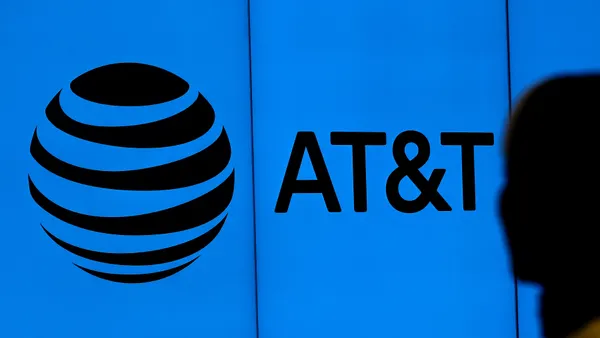Editor’s note: Kate Tornone is HR Dive’s lead editor. Our Talent Textbook column explores the fundamentals of talent management and acquisition. Kate can be reached at [email protected].
Employers are increasingly creating opportunities for workers to share their pronouns in order to improve inclusion, especially for applicants and employees who are transgender, nonbinary and gender nonconforming.
But sometimes trainings, forms and the like refer to "preferred pronouns," a well-intentioned description but one that actively works against an employer’s goal of inclusivity.
Using the modifier "preferred" indicates that there’s a choice or preference and fails to affirm the person, according to Schuyler Bailar, trans inclusion educator and consultant, and the first NCAA D1 men’s trans athlete.
The importance of pronouns
To get this right, it’s important to remember the significance of pronouns, Bailar told HR Dive.
"Pronouns are one of the ways we portray our identities," according to the University of Colorado’s Center for Inclusion and Social Change; "When someone asks you to use their pronouns, they are asking for you to respect their identity." Incorrect pronouns can leave a person feeling disrespected "and can lead to dysphoria, exclusion and alienation," the office’s website says.
Everyone has experience with pronouns, although not everyone uses them, Bailar pointed out. And for some people, being referred to with the incorrect pronouns can be a painful experience, he said. That’s why it’s great that employers are increasingly asking for pronouns; "We don’t assume people’s names when we meet them; we shouldn’t assume their pronouns when we meet them," Bailar said.
But when pronouns are referred to as "preferred," it takes away from their importance and the affirmation of individuals’ identities, Bailar explained. That language can imply that a trans person’s identity is not their identity but rather a choice, "and trans peoples’ identities are really important and real," he said.
Deeming something a "preference" implies that other options work — they’re just not your preference. "If I prefer ketchup," Bailar said, "that doesn’t mean I will refuse mayonnaise or mustard." The same can’t be said for pronouns.
Best practices
Instead, employers can simply create opportunities for employees to share their pronouns. Bailar cautioned, however, that requiring individuals to disclose pronouns can pose problems (such as forcing an individual to out themselves as transgender when they're not comfortable doing so, for example).
Forms, Slack fields and similar spaces should merely include a "Pronouns" field with a place for employees to write in their pronouns if they're willing to share that information, he said. This space shouldn’t have employees select pronouns from a list, but could include examples such as "he/him, she/her, they/them, etc.," Bailar said, adding that he strongly encourages employers to include "they/them" in any example lists because of the way such pronouns often are discounted.
The same should be done for names. "Preferred name" is another phrase that can be harmful, Bailar said, because it implies a lack of realness.
While many forms at work can and should use only a "Name" field, human resources professionals may have tax or insurance reasons to need employees’ legal names. In these cases, employers should start with a "Name" field and have an additional field requesting something like "Legal name, if different from name used," Bailar suggested.
Again, avoid phrases like "real name" or "birth name," he said, and only ask for an individual’s legal name when absolutely necessary. It’s also crucial that HR pros privy to such information never call employees by names they don’t use. Managers, for example, may never need to see legal names; "that’s very private information," Bailar said. HR pros can think about how they treat medical information, and work to treat legal names the same way, he suggested.
Remember compliance, too
HR professionals may find themselves needing to enforce proper pronoun use at work, too.
First, remember that HR may need to, according to employment law attorneys, insist that employees use co-workers’ correct pronouns. Deliberate misgendering — including a refusal to use a co-worker’s pronouns at all — can rise to the level of harassment and if an employer doesn’t intervene in situations of which it is aware, resulting problems can include an exclusionary culture, turnover and gender-based discrimination lawsuits.
(Mistakes may happen, but experts often recommend that the individual who used an incorrect pronoun offer a quick apology, correct themselves and move on — and separately avail themselves of the many resources available to avoid repeating the mistake.)
HR also may need to step in if employees use pronoun spaces to make jokes. While some individuals who are trans or nonbinary may understandably use those spaces for some light-hearted fun, Bailar said, HR should address situations in which an employee inappropriately uses the space to make light of pronouns or to harass or mock.
From inclusion to compliance, HR has good reason to ensure that the practice of pronouns is, as he put it, "carefully and respectfully enforced."














